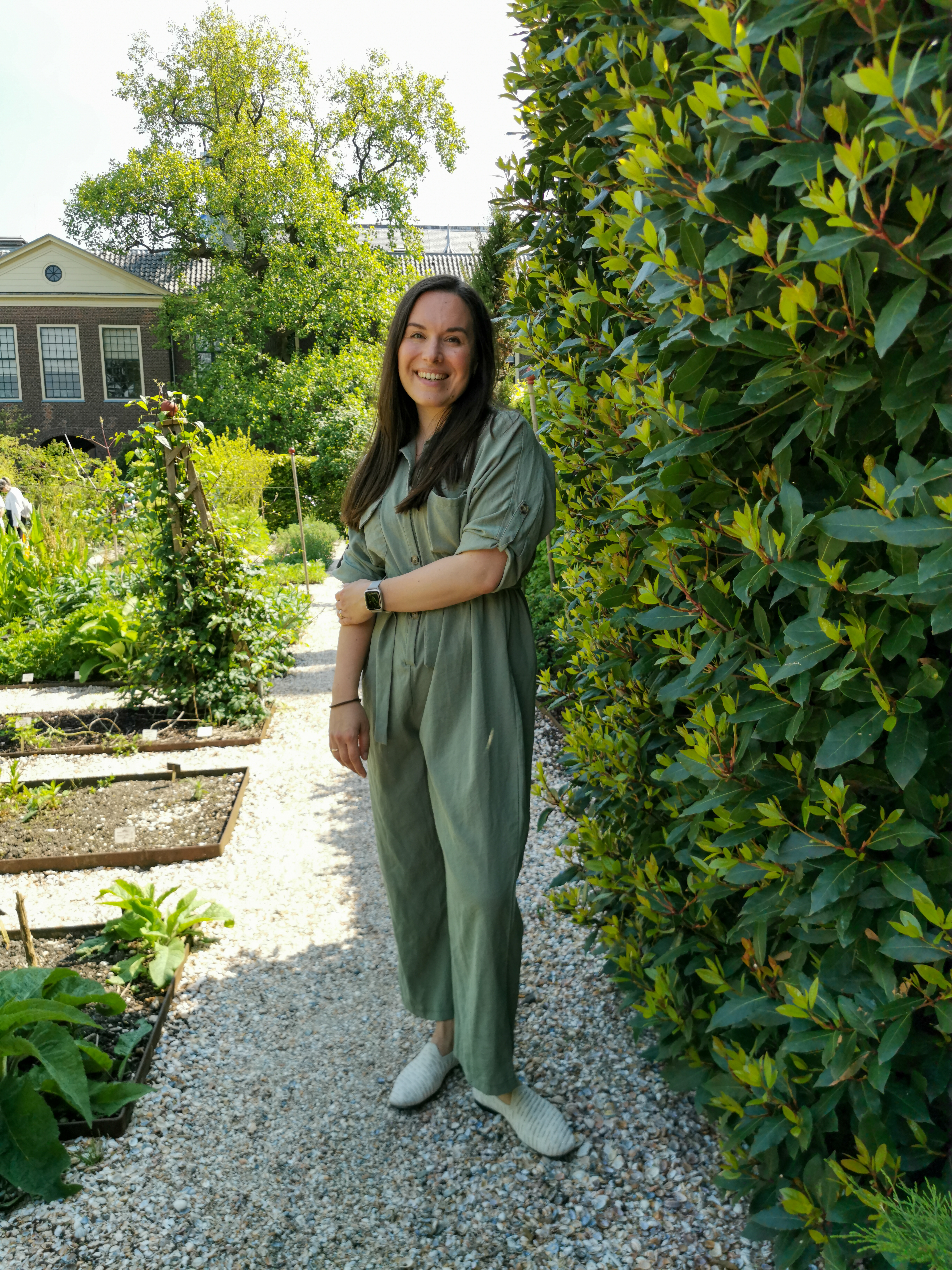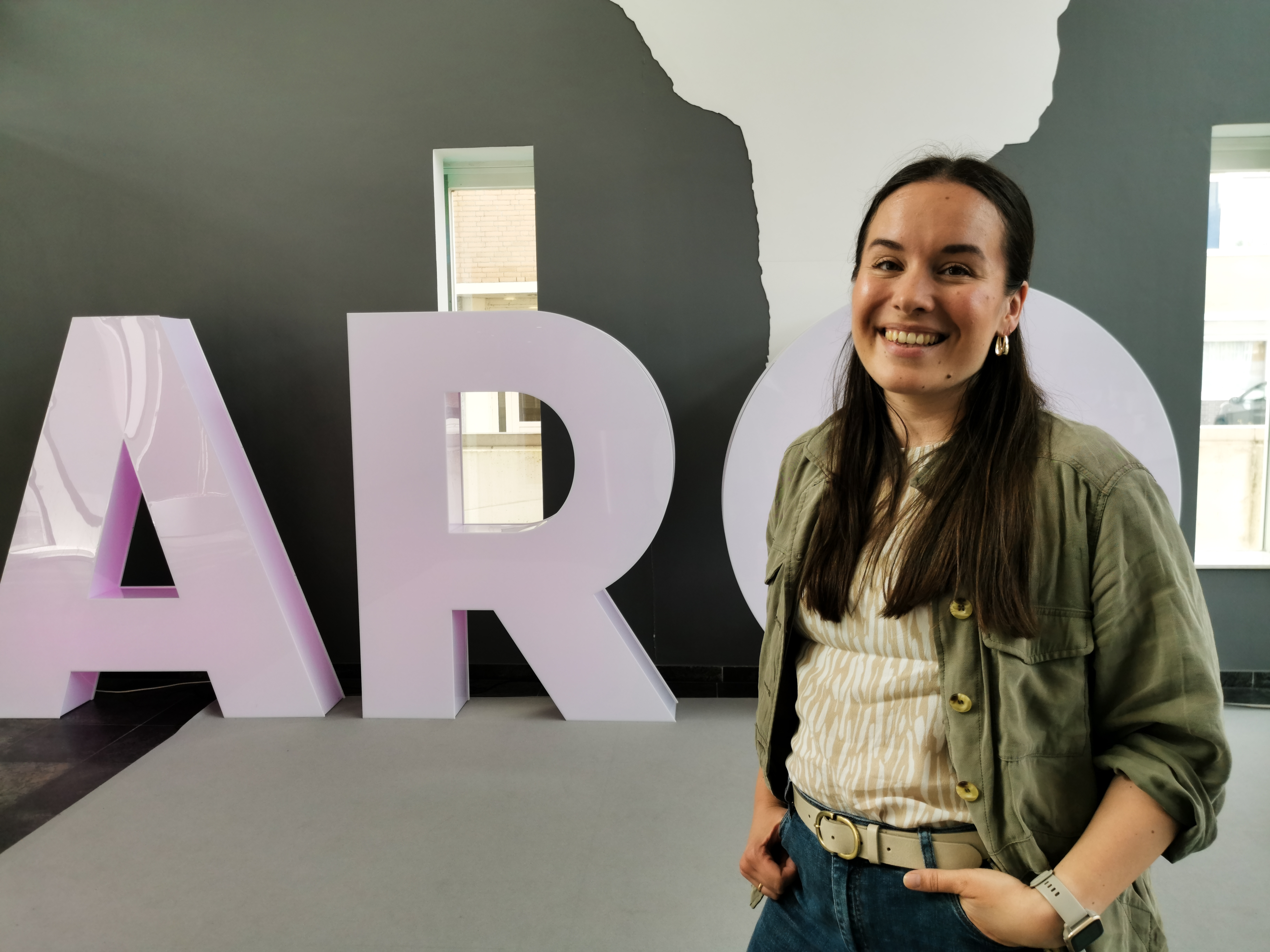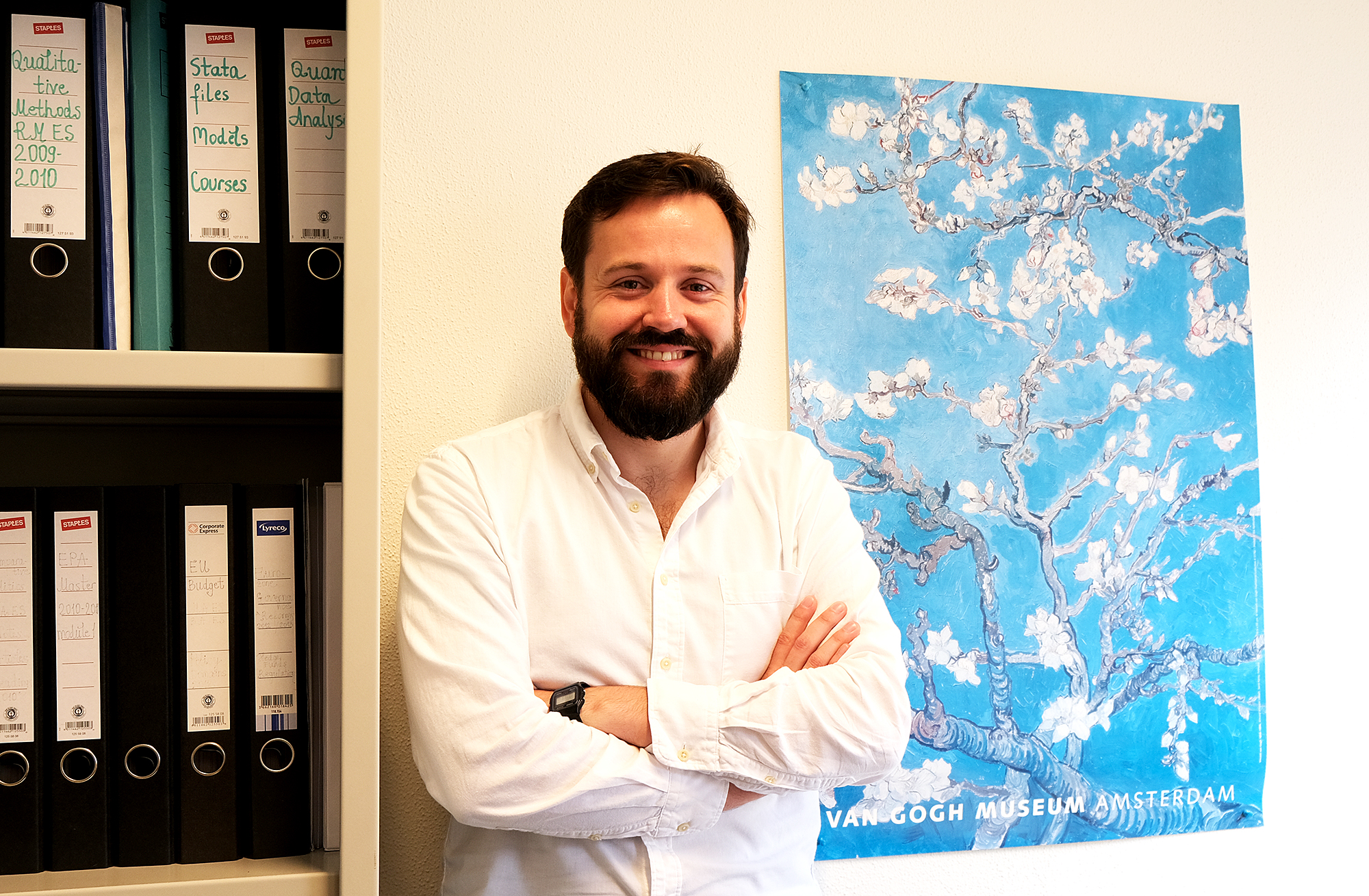Carer of carers
Alum Saara Martinmäki volunteered for the Red Cross, and during high school helped drowning survivors overcome their fear of water. She came to Maastricht University in 2015 to pursue a master’s in Clinical Psychology. Today, she conducts research on the wellbeing of humanitarian aid workers and advises international organisations on how best to support their employees. “I became fascinated by applied mental health research when I saw how successful trauma treatment can be.”
Martinmäki laughs as she recalls an early misadventure in Maastricht. “I was cycling home from a party and got lost in a park. It was pitch dark. Suddenly I saw this giraffe and other animals around me. I believe there was a bear sitting on a bench. Thankfully, I realised they were statues. I remember wondering where on earth I was. I didn’t have a Dutch SIM card yet, so I had no internet on my phone. It felt like I cycled around that city park for hours until somebody pointed me in the right direction.”
Martinmäki followed the master’s in Clinical Psychology, then called Psychopathology. She was attracted to the programme by the combination of clinical skills and research skills in the field of mental health. “You learnt how to design interventions and how to help people with psychological disorders. You reviewed published research in class: how was this study conducted, and how could it be improved? And you could delve into specific conditions, like anxiety disorders, eating disorders, stress or trauma. The Advanced Statistics course in particular proved crucial to my career and my PhD research.”
War veterans
The programme absolutely met her expectations. “I’m not exaggerating when I say it was fantastic. It was tough, not easy, but you got a lot of support from fellow students and a team of passionate teachers, often genuine specialists. The lecturer on stress and trauma actually did research in the field. And the students supported one another and did everything they could to help each other get through the programme. We were very close. That’s my advice to current students—rely on your network of peers and lecturers.”
Martinmäki has long been intrigued by traumas and other stress-related disorders. Her interest was piqued in California, where she spent a year as a research assistant in a clinic for traumatised war veterans. “I was involved in a study of the effectiveness of different treatments for PTSD. What I saw there was remarkable. The veterans’ symptoms often improved week by week. I found it impressive that a treatment could be so effective. That was also when I discovered my passion for applied research.”
Text continues below the photo.

Saara Martinmäki obtained her bachelor’s degree in Psychology from the University of Glasgow. She moved to Maastricht in 2015 for the research master’s in Clinical Psychology (Psychopathology) at the Faculty of Psychology and Neuroscience. Since 2017, she has worked as a policy adviser and researcher at ARQ National Psychotrauma Centre, where she conducts PhD research on psychological trauma and mental health disorders among humanitarian aid workers.

Care for carers
After her master’s, she became a researcher and policy adviser at the ARQ National Psychotrauma Centre before transferring to its international department. ARQ International assists organisations in providing psychosocial support to victims of wars and disasters in low- and middle-income countries. Martinmäki’s focus is on humanitarian aid workers and other carers. “We work with local partners, mainly NGOs. As a staff member, I advise on research projects, help to develop psychosocial interventions and write funding proposals.” ARQ uses the “care for carers” model, she explains, which is based on the idea that carers can’t effectively help others when suffering from undue strain themselves. “So, we assist aid organisations in better supporting their employees’ social and psychological wellbeing.”
Stressors
A surprising conclusion of Martinmäki’s PhD research is that humanitarian aid workers generally don’t become traumatised by the terrible things they see. Instead, the stressors tend to be organisational in nature, such as unclear communication, high workload, bullying and sexual harassment—stressors that also tend to accumulate. Her advice to aid organisations is to focus on these kinds of manageable stressors. “Ultimately, my goal is to create systems that protect and improve aid workers’ wellbeing. I love making a positive impact by helping humanitarian workers to stay healthy and do their jobs to the best of their ability.”
Trained mentors
The current situations in Gaza and Ukraine haven’t discouraged her. “I do find it depressing that the growth in humanitarian aid and funding doesn’t keep pace with the increased need. We’re always playing catch-up. But what gives me hope is that more attention is being paid to interventions like Problem Management Plus, which was developed by the World Health Organisation. The great thing about PM+ is that it doesn’t have to be delivered by professionals, but by trained non-specialists from the community. In the Netherlands, this method has been used to train Syrian refugees to help fellow Syrian refugees. It’s also a good solution for low-income countries with a shortage of mental health professionals.”
Data science
After defending her PhD, which focuses on the impact of the work environment on humanitarian aid workers’ wellbeing, Martinmäki intends to continue her research on mental health interventions in low- and middle-income countries and conflict zones. She’s also interested in the potential of data science to improve global mental health. “I’ll keep doing research, but I also want to translate my findings into recommendations for policy, treatment and mental healthcare practice.”
Text: Hans van Vinkeveen
Photography: Saara Martinmäki
Ultimately, my goal is to create systems that protect and improve aid workers’ wellbeing. I love making a positive impact by helping humanitarian workers to stay healthy and do their jobs to the best of their ability.
Also read
-
The 2024 Turriano Prize from ICOHTEC (the International Committee for the History of Technology) was awarded to Jacob Ward’s book Visions of a Digital Nation (MIT Press, 2024). The Turriano Prize recognises the best first book by an historian of technology.
-
Billions of dollars in foreign aid could be spent more effectively if international poverty statistics weren’t so inaccurate. Says Dr Michail Moatsos, Assistant Professor at Maastricht University School of Business and Economics.
-
Four young UM researchers have received a Veni grant worth up to €320,000 from the Dutch Research Council (NWO). This will allow them to further develop their own research ideas over the next three years.


